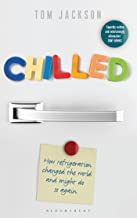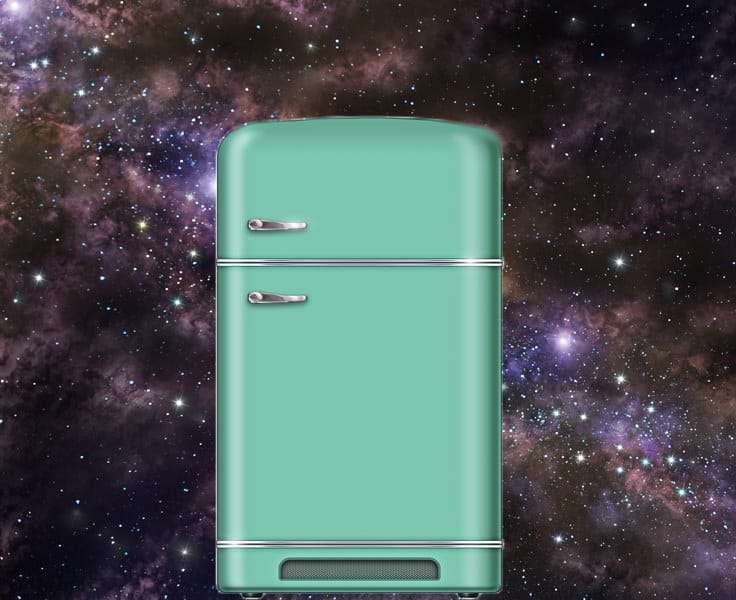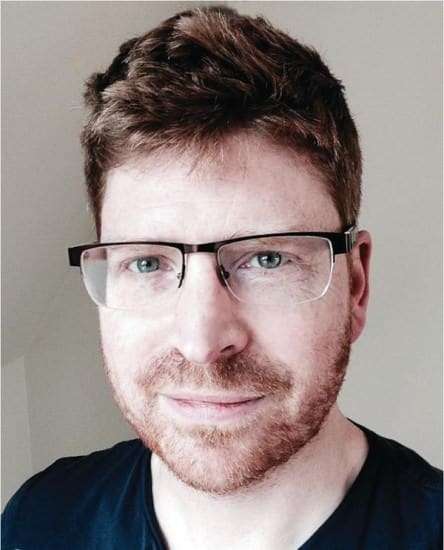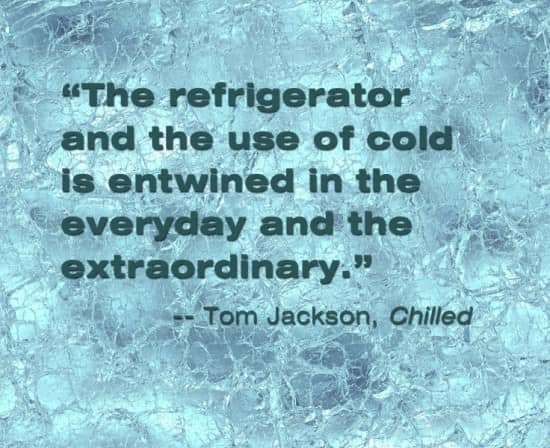Chilled: How Refrigeration Changed the World, and Might Do So Again by Tom Jackson
What's It About?
If you had to lose the use of just one appliance in your house, which one would affect your life the most?Sure, losing your computer or your television would be a bummer—you would have to resort to binge-watching your cat playing with a toy mouse for entertainment. No stove might lead to peanut butter sandwiches for dinner and if you didn’t have your washing machine, there’s always the laundromat. Heck, you could cook over an open fire in the backyard and beat your clothes on a rock in a river if you had to.
But what would happen if you suddenly had no refrigerator? You would lose your place in the “cold chain,” a globally-encompassing transport corridor that connects the farmer’s field to your dining room table—and to dining room tables all over the world.
This cold chain, according to author Tom Jackson, literally holds world culture together. Without it, hundreds of millions of people around the globe would lose their access to fresh food. And food is just one benefit of humankind’s ability to produce cold on demand. Refrigeration is key to a host of other modern technologies, including space rockets, medical scanners, skyscrapers, antibiotics and test-tube babies. Your fridge may keep your favorite beer cold. But the technology behind it will one day lead to such marvels as quantum computers and teleportation machines.
Jackson’s new book, Chilled: How Refrigeration Changed the World, and Might Do So Again (Bloomsbury, September 22, 2015), is the remarkable story of one of the most ubiquitous devices on Earth. As Jackson points out, humankind has controlled heat and light since it first figured out how to create fire at least 100 millennia ago. But cold has been at our command for only a century, and the story of its development—from its use as a luxury by a privileged few to chill wine and desserts to its scientific applications for devices few of us can imagine—is enough to send chills down a reader’s spine.
Recently, Jackson spoke with BookTrib about his book, the future of technology, and the warm place that cold-on-demand has in our hearts.
BookTrib: Why refrigeration? What led you to this as a subject for a book?
Tom Jackson: It started out very simply: the fridge does the complete opposite of almost all of our other technologies. If we were lost in the woods, we could all probably figure out a way of warming stuff up, setting fire to something, perhaps. However, who could make something colder than it already was? So, I knew the story of how we learned to take control of cold and I thought it could be told in a fun way—it’s a real epic.
There’s a grand sweep of science history behind refrigeration, with many of the famous names from science appearing and a lot of more unusual stuff going on. And then I realized that cold is very much at the cutting edge of science future too. So there’s quite a story to tell about the past, present and the future—and it’s all happening inside your fridge right now.
BT: What other devices or pieces of technology “hang around in the background” of our lives, but would be desperately missed if we were without them? What else do we take for granted?
TJ: I’m not sure anything trumps the refrigerator in this regard, in the impact it’s had on society and the scope of its uses that go far beyond our everyday experience of it. Of course, our civilization is littered with inventions that have transformed it, things like the wheel, electricity generator, paper and printers (old and new), lenses, antibiotics—even soap! The big question is: what’s next?
Economic growth and the well-being it brings springboards from technology. I’m talking about big things like agriculture, writing, heat engines, the transistor. The semiconductor-based transistor was invented in the late 1940s by the people who went on to found Silicon Valley. Sure, a lot has happened since then, with the computing, communications and finance revolutions, but it can all be traced to novel uses of that one invention. How much more can be develop from the transistors, microchips and the like? What new invention will change the world next time? Google’s upcoming rebranding as just one arm of the Alphabet organization is indicative of this. The future is not always going to be about computers and the Web. It’s something else. But what?
Buy this Book!
Amazon







